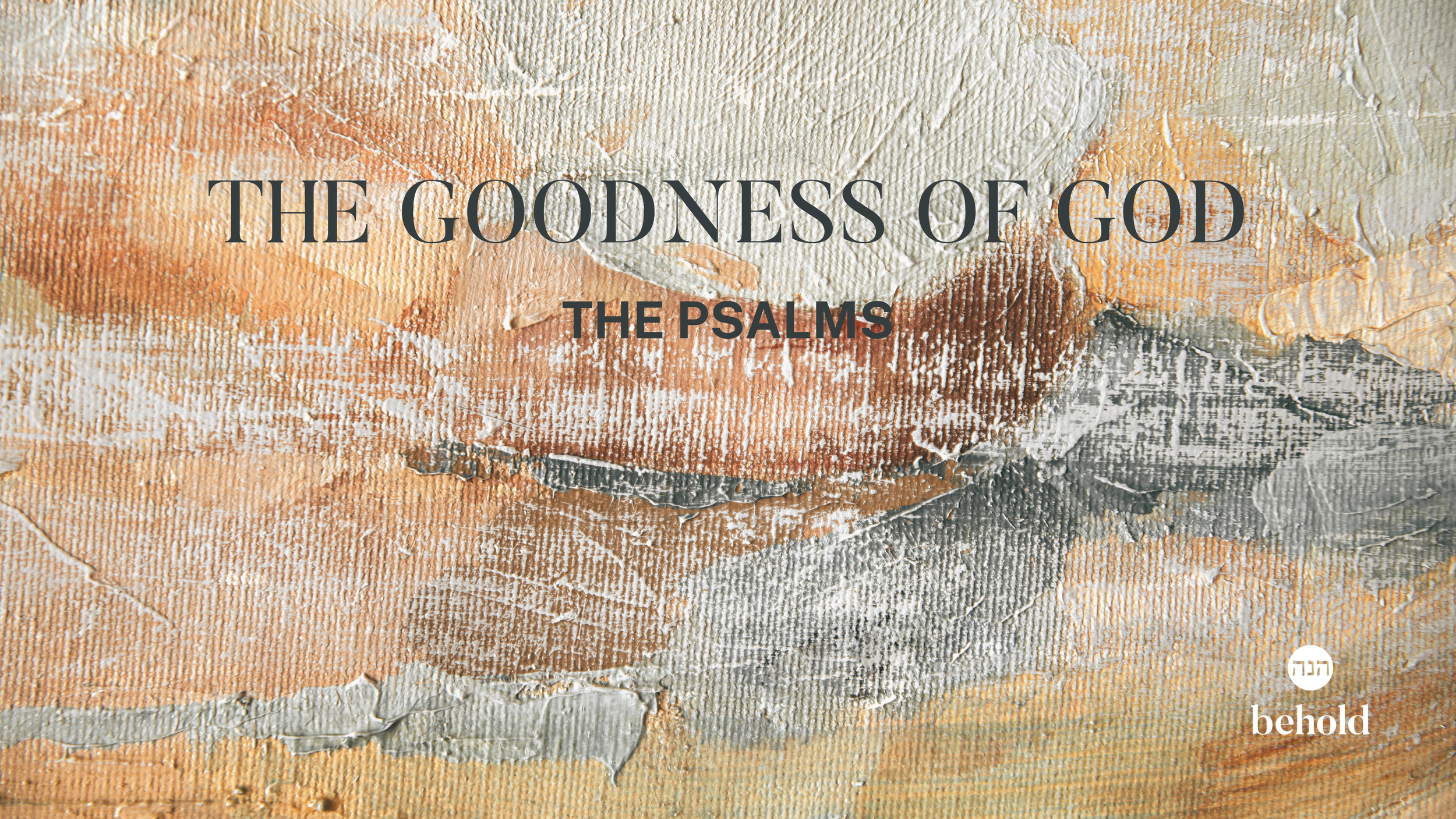The Goodness of God: In the Psalms
Since becoming a believer, I’ve struggled to see God’s goodness. I find it funny that The Behold Collective is in a series about God’s goodness, but it’s the most blurred in my life. I’ve texted my mentors about thirty times since moving about how hard college is and how exhausted I am. God knows exactly what He’s doing. Through studying for this blog, I have read scriptures that give me déjà vu. I have felt these emotions and cried out to God in these ways before, but my good God has always answered in these ways before. Whether it was peace that made no sense, healing in a season of pain, or strength in a season of weakness, God always showed up. I challenge you to view the Psalms the same way. How can this reflect your life and your lament?
My dorm dad, Chase, once told me, “What is powerful about the Psalms is that despite people’s hardship, they continuously prayed for God’s provision. They don’t let what happened to them define who God is.” Understanding this is the first step to understanding God’s goodness in this book. In a book full of praise and joy, there is pain and hardship underneath the words. God’s goodness is illuminated in most teachings of the Psalms, which is a great thing. Still, we must not rush over the brokenness within the text that God overcame.
UNDERNEATH THE NARRATIVE
The entire book of Psalms is 150 poems of lament and praise. To sum up most of the Psalms, I would say, “God, I can’t, but You can!” Each author lays down and admits their struggles, then praises and thanks God for His mercy and goodness.
Though this book has 7+ authors, I will focus on David’s life. David wrote 73 of the Psalms. Over and over again, King David emphasizes his pain but rebukes it by praising God and illuminating His goodness. David’s struggles included fleeing from King Saul, depression, sexual sin, murder, generational curses, and exhaustion in leadership. Many of us can relate to most of these struggles, but can we also relate to David’s unending praise throughout his suffering? What matters most is what God did. I’m preaching to the mirror here, but I believe God’s action is something we should take sincerely into our hearts.
GOD’S GOODNESS IN THE TEXT
In Psalm 23, we see David putting his trust in God. David was in the wilderness, running from King Saul during this time. Many of us relate to that feeling of wilderness and running, but again, can we relate to the trust David is putting in God? Verse 5-6 says (bold and italics mine),
“You prepare a table before me in the presence of my enemies; you anoint my head with oil; my cup overflows. Surely your goodness and mercy shall follow me all the days of my life, and I shall dwell in the house of the Lord forever.”
Psalm 31 records King David crying out to the Lord in his depression, sickness, and suffering. Verse 13-14 says (bold mine),
“For I hear many whispering, “Terror on every side!” They conspire against me and plot to take my life.
BUT I TRUST IN YOU.”
Later on, verse 19 says,
“How abundant are the good things that you have stored up for those who fear you.”
He is terrified for his life here, but even still, his God is so good.
In Psalm 34, we read a poem from King David after he fled from King Abimelek of Gath, whom he was afraid of. Verse 8 says,
“Taste and see that the Lord is good; blessed is the one who takes refuge in him.”
He had just escaped from someone who was out for his blood! God helped him flee. Of course, he wrote this praise!
The author of Psalm 116 needs to be specified, but many believe King David wrote it. The author writes about the horrible suffering they’re experiencing. Verse 3-4 says (italics mine),
“The cords of death entangled me, the anguish of the grave came over me; I was overcome by distress and sorrow. Then I called on the name of the Lord: ‘Lord, save me!’”
Psalm 116:8-9 says,
“For you have delivered my soul from death, my eyes from tears, my feet from stumbling; I will walk before the Lord in the land of the living.”
The author of this acknowledges his suffering but praises God’s goodness.
SEEING GOD’S GOODNESS IN OUR LIVES
A few practical ways I’ve practiced recognizing God’s goodness in these texts are in prayer, my writing, and worship. Sometimes, I find myself unable to speak because of my depression or shame. A Psalm I’ve learned for most of my walk with Jesus is Psalm 23. I use it sort of as affirmations between me and God. As a children’s ministry major, I use hand motions or signals in my prayer. It seems silly initially, but it helps me remember the scripture and know that my body is also doing the actions.
“The Lord is my shepherd; I lack nothing.”
I imagine myself getting His attention here.
“He makes me lie down in green pastures, He leads me beside quiet waters, He refreshes my soul.”
I imagine getting splashed in the face with cold water on a 100-degree day. Oh, how refreshing.
I challenge you to take what I have said here, examine your own life, and practice what you’ve learned. Read a Psalm line by line, memorize it, and meditate on it. Let us NEVER forget God’s goodness.


